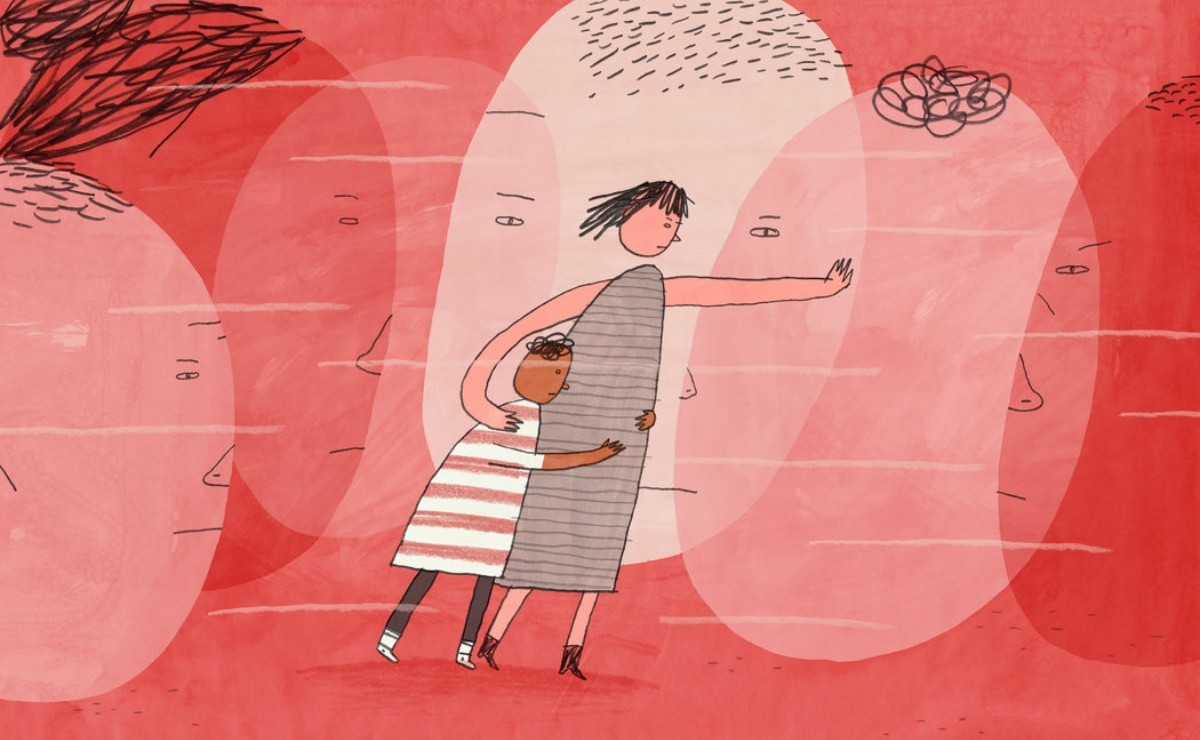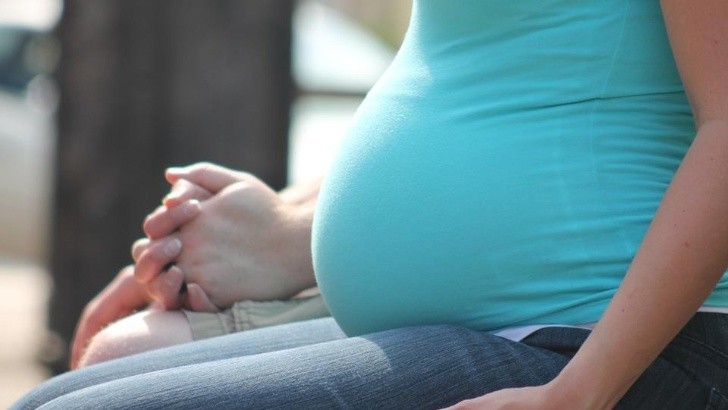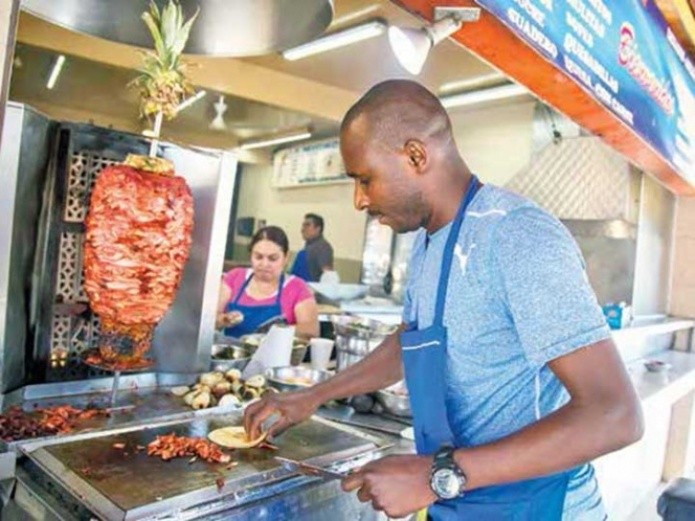
An interracial marriage with mixed-race children continues to be judged by some societies in the world
Ten years ago I was alone at a Chinese banquet for my stepfather’s funeral and I was looking for a place to sit. I was seven months pregnant; I hadn’t told anyone who was there, but I knew they would ask questions about the size of my belly .
After weighing which family members were least likely to question me, I ended up sitting next to my mother, who offered me her silence.
She was not married and about to give birth – the worst situation in Chinese tradition. I knew my mother was disappointed, but I was very excited. I had dreamed of having a child for years, I imagined the joy there would be at its mere existence.
I imagined how her milk-scented body would feel against my chest; he would sleep and we would both breathe together, exhausted but overflowing with love.

At the funeral banquet I ate the soup without tasting it and tossed the pieces of fish in the broth. My partner, Claude, was waiting at home and was cleaning the apartment to help prepare us for the next few months.
She offered to accompany me to the funeral, but I told her that I wanted to go alone to avoid being asked about us, without explaining what I meant by that.
His parents, who emigrated from Haiti, taught him to be above conflict with enviable elegance. When I met Claude, we did not discuss the possibility of having an interracial marriage with mixed-race children. It was about living how I wanted, dating who I wanted, and following my heart.
However, I never thought about how my heart would make me question the depths of my learned biases or wonder how my upbringing, marked by a high regard for the Caucasian, would seep into questions about who I am or with whom I would choose to make a life.
Before I went to the funeral, Claude asked me one last time if I didn’t want his company. I shook my head sadly and closed the door behind me.
On the way to the subway, I thought about the man I was about to watch over. When I was growing up we called my stepfather Archie Bunker, like the patriarch of a 70s television series who said racist things, but was portrayed as having a good heart.

Archie was a prime example of the audacity of many white people to make certain comments, a stance embraced by my stepfather after emigrating from Hong Kong when he knew little English.
His racism seemed to have stemmed from how doubtful he felt about his place in a country that prided itself on diversity while all the power dynamics suggested that it was not.
My stepfather lived on stereotypes and assumptions, always making his views known about social class or races and ethnicities that were not his own. During dinners he and I would fight; I questioned his intolerance until my mother silenced me. It gave in because the Asian parenting tradition teaches you to respect your elders no matter what the personal cost of doing so.
At my stepfather’s funeral I kept my head down, tired from the memories I had of him. My decision not to bring my partner to the ceremony was a strange act of honoring a man who tainted my ideas of love. I did not inherit his racism, but it had made me act against the love I felt growing within me.
I imagined the disapproving look he would have had for my future husband and my baby just because of his complexion. It hurt to even think about it. So I made the decision that the ideas of a deceased man would not control my life: I brought my immediate family together to talk openly with them about my love for Claude and my pregnancy.
A week later, on a summer day, we all went out for a picnic together. There we were under maple trees: me with a full belly and my partner and family exchanging awkward greetings. I saw my brother play pass the ball with Claude; The back and forth wasn’t like a sibling thing, but it showed glimpses that maybe one day it would be.
Every gesture in the meeting, no matter how small, seemed super important. I touched my belly to assure my son that I would always defend his presence and that I regretted hiding it from someone. His life, then and now, is my answer to the question: "What do you believe in?"
Almost ten years later, while I was next to him when I read, I realized that he is almost big enough to hug me completely. Recently, his obsession with books has given way to an interest in writing. His favorite genre is science fiction; makes graphic novels about the end of the world with five-horned demons and dragons falling from the sky.
In one of his illustrated boxes I noticed a dark and lonely figure in the midst of a multitude of white figures. Underneath it had written: "Who am I?"
I was surprised. Were you speaking on behalf of a fictional character in an apocalyptic setting or were you speaking about him in the present?
"What do you mean by this?"
Shrugged. "It’s the story of a boy who walks into a room, sheds his skin, goes back into the world and wants you to guess who he is."
I pondered his words for days, wondering if he had done enough to help him understand his individuality. I thought beyond my stepfather, to the ancestors who I believed were participants in forging a world that would have rejected the person I love the most.
Now I challenge many of the traditions that I grew up in. I reject the racist signs that I perceived in my childhood. But also within my own family I have seen changes in matters of love and how it is shown and accepted. As Roman grows up, his questions have become mine. As he claims his identity I feel compelled to do the same with mine.
When a teacher harshly scolds him I wonder if it is because of his complexion. If his teammates don’t invite him to play, I question whether it is because he is a black person. Every thought and action I now contemplate with an internal debate around race. I am his mirror and he is mine.
It is a human process with answers that are not definitive, but are in development. And he is stronger every day, more capable of facing the world around him. Maybe now I can say the same about myself. We grow together and we love each other within the coming and going of our ties.
Moments before my son was born, Claude was sitting next to me, stroking my arm. In the most tender way he told me that everything was going to be fine and, believing him, I was able to relax during the delivery. Roman was coming.
And how she longed for him to be here. I fought with my ancestors to claim my life. In the middle of a dream I felt like a character in the science fiction stories that he would write; I plunged into a mud where there seemed to be snakes and an ocean and a fiercely gray sky that wanted to keep me underwater. I begged my ancestors to let me return to the real world, I struggled to return to my son.
Even now I can see how I did it that day, with all the colors of my longings within him and the universe struggling to make him go from idea to reality, he and I born with the urgency of faith. And it came, a baby so real that they put next to me. Alive.